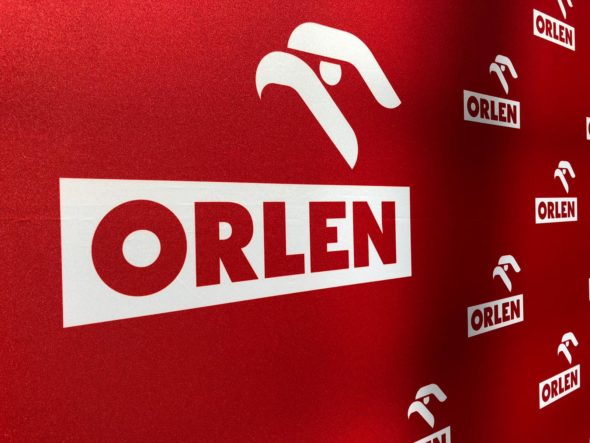In February the Austrian oil company OMV announced it would withdraw from the Slovenian market. Its petrol stations are to be sold to a new owner. A Slovenian business portal bizi.si claims that a few companies are interested in the purchase: Poland’s PKN Orlen, Azerbeijan’s Socar, Greece’s Coral (Shell brand) and Hungary’s MOL. This transaction would open the door to interesing changes not only on the Balkan market, but also in Poland – writes Bartłomiej Sawicki, editor at BiznesAlert.pl.
MOL is the frontrunner
According to the Slovenian portal, the taking price may be between EUR 252 to 360 million. The portal found out that the Quatari concern Q-8, which already owns 362 petrol stations in Italy, and a large supply hub in the north of the country, is also interested in the assets in Slovenia. Since these markets are close to each other, the Qatari are also interested in taking over those petrol stations. Interestingly, the Hungarian MOL is engaged in the takeover process the most. The company is present on the nearby Croatian market as the co-owner of the INA brand. This purchase also seems likely, because INA already owns 7.75 percent of OMV Sloveniya, and the Austrian OMV wants to sell over 92 percent of that entity’s shares.
The Slovenian outlet suggests that there might be an informal agreement between OMV and INA, which has only six petrol stations in Slovenia. Thanks to this transaction MOL could grow its presence in the country, where it is treated as a „transit bridge” between the Balkans and Italy. Currently the MOL brand has a 21 percent share in the market with 120 petrol stations. MOL would like to increase that to 30 percent.
Will Hungary enter Poland via Slovenia?
However, there is also another reason why the Hungarians may make the purchase. Péter Ratatics, Executive Vice President for Consumer Services at the MOL Group, has recently revealed to the Polish media that MOL would like own gas stations on a new Central and Eastern European market, and Poland might be the place.
It is worth reminding that in order to take over the Lotos Group, PKN Orlen needs to meet the requirements made by the European Commission, which means it has to sell the majority of Lotos’s gas stations. MOL may be one of the potential buyers. PKN Orlen is hoping it will be able to meet the most of the EC requirements thanks to exchanging assets and entering new markets. The potential purchase of gas stations in Slovenia would allow Orlen and MOL to exchange assets in theory. This would increase MOL’s presence on the Polish fuel market (MOL is already present in the south of Poland, where it owns Slovnaft’s partner fuel stations. In 2020 there were 82), while Orlen could enter new markets in the south. After Slovakia, Slovenia would be next.
Access to the raw material is key
However, this possible transaction entails one condition. Orlen has frequently stressed that it would be interested in taking over gas stations on new markets, provided it also had access to the manufacturing base or raw materials. The closest base could be INA’s refinery in the Croatian Rijeka. On the one hand this could encourage new investments in the refinery, and on the other provide Orlen access to the production base. Interestingly, Orlen could fill in the entire chain of supply, production and sales in the Balkans, because Orlen’s Czech company Unipetrol is a client of the Croatian oil terminal Omišalj, managed by the oil transmission system operator JANAF. However, this complicated puzzle would require many additional agreements, and most of all, MOL would have to agree to let Orlen into its refinery. On the other hand, MOL could compete with Saudi Aramco for shares in Lotos’s refinery in Gdańsk.
MOL or Saudi Aramco? Maybe both?
The implementation of the EC’s remedial measures by Lotos and PKN Orlen in the area of production and wholesale fuel sales entails, among others, the separation of refinery assets out of Lotos and transferring them to a company – a legal entity for refining assets – that completely depends on the company, and a sales deal of 30 percent of shares in the special purpose vehicle, together with a joint venture, as well as the most important accompanying contracts. The Polityka Insight think tank revealed in December 2020 that Saudi Aramco was interested in taking over 30 percent of the Gdańsk Refinery stock, which is necessary to meet the conditions set out by the EC for Orlen to take over Lotos.
For years PKN Orlen hsa been interested in entering the Balkan market. Even back when Jacek Krawiec was Orlen’s CEO, the company was interested in taking over MOL’s shares in INA. It was about seven-eight years ago, but the parties did not officially express interest. Back then INA was supposedly too expensive for Orlen. Now a second opportunity has arrived.
The potential rivalry between MOL and Saudi Aramco for the shares in the Gdańsk Refinery may also turn into cooperation. Artur Soboń, the Deputy Ministerof State Assets said in March at the Sejm that exchanging Orlen’s and Lotos’s assets could be done with the participation of one or two partners. According to the EC remedial measures, a joint venture at the Gdańsk Refinery needs to be established, 11 percent of the storage area, 389 petrol stations and 13 percent of the asphalt market need to be either exchanged or sold. „This means assets can be exchanged with one or two partners who cooperate in order to improve the efficiency of the business,” Soboń added. By the end of June the future of the Gdańsk Refinery and the ensuing changes on the fuel market will be known.









